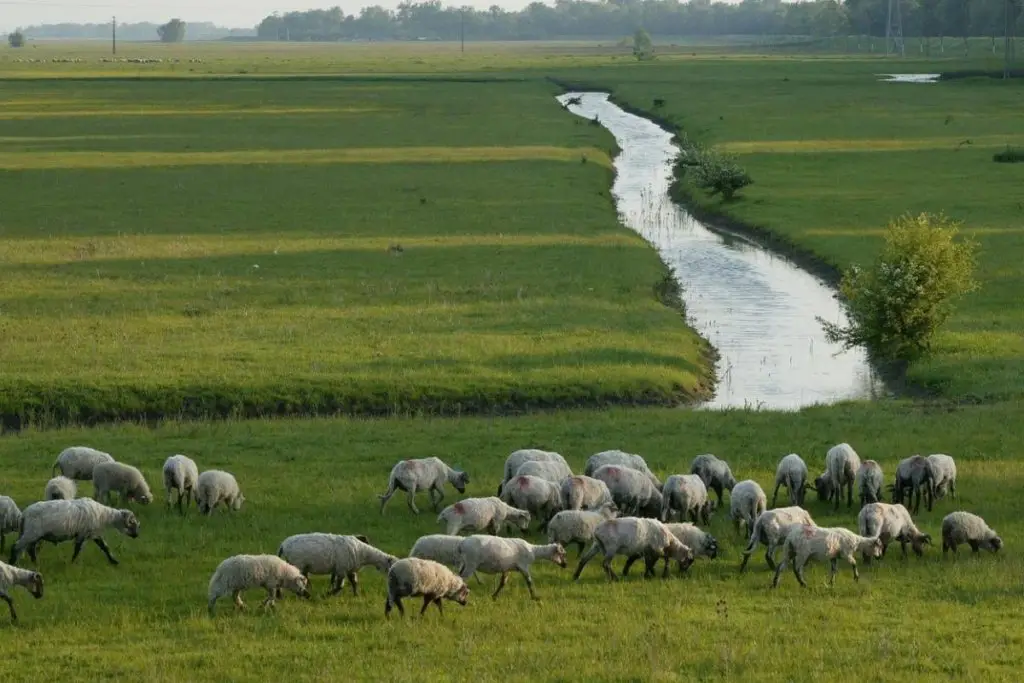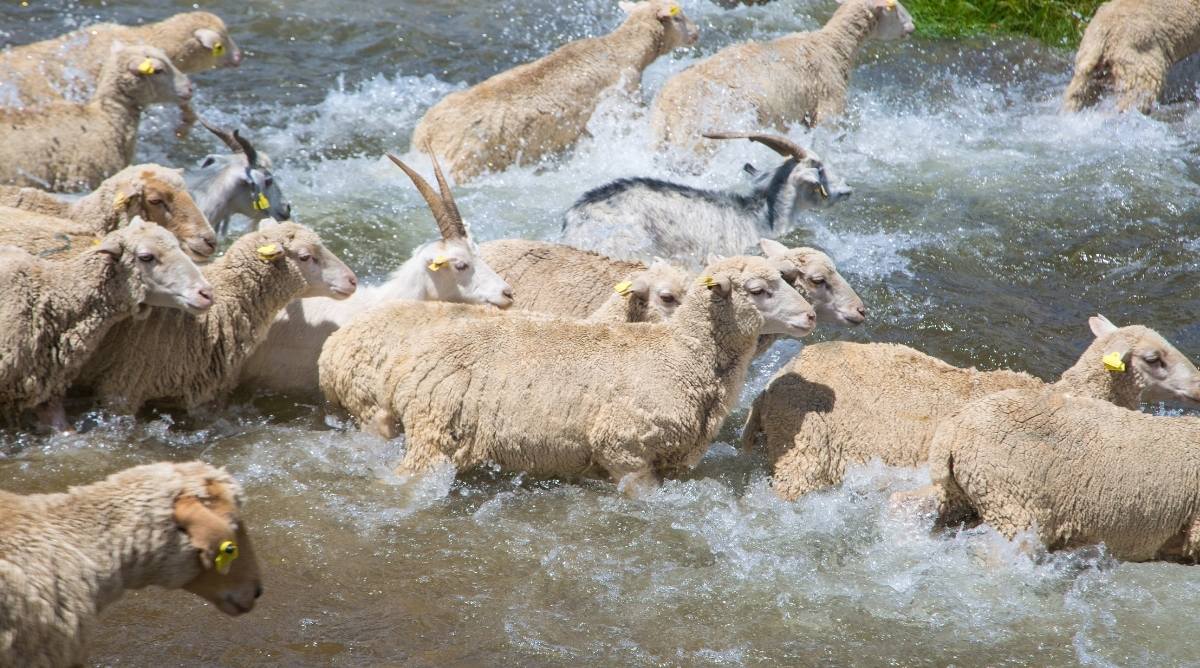Yes, sheep can swim—but they do not like it, nor are they strong swimmers. Swimming can be dangerous for them. However, sheep will swim for survival, to escape predators, or to search for food.
Table of Contents
Are sheep good swimmers?
Sheep are not good swimmers, nor do they like swimming. They normally stay out and away from bodies of water unless they need to drink.
When they absolutely need to, sheep can swim themselves to safety. However, heavy currents and fast rivers can be particularly dangerous for them and can result in drowning, especially when sheep have thick wool coats.
How far can sheep swim?
Sheep cannot swim far, and under some conditions they have an especially difficult time.
Sheep with full wool coats will have a hard time swimming, especially in deep waters. Wool gets heavy once it is submerged and soaks in water, and can pull sheep down, resulting in drowning. Long wool coats present another obstacle as they can get caught on underwater logs, rocks, and other debris, which can trap them in the water.
Pregnant ewes have a hard time swimming and getting out of deep water because of the extra weight.
Whatever the sheep’s condition, they will struggle in waters with swift currents. Their swimming abilities are not enough to counteract fast-moving water.
How do sheep swim?
Sheep are not natural swimmers. Instead, they simply propel themselves while floating in the water.
Their instinct to keep their head out and above the water will have the sheep kick and struggle. This brisk-walking motion will keep them afloat and moving across the water. A sheep’s swimming movements can be compared to a dog paddle, although sheep do not swim as efficiently as dogs.
The other challenge sheep face (as compared to dogs) is their wool, which gets heavy and cumbersome when wet.
Why do sheep swim?

Sheep will only swim if they are driven by their primal instincts.
These instincts include hunger, fear, and survival:
- Hunger: Sheep will only attempt swimming across water when their survival is at stake. If their current grazing area does not have enough food, for example, they will risk crossing a stream or river in search of greener pastures.
- Escaping predators: Sheep can also swim across the water if they are escaping a predator. Sheep will only do this as a last resort—for instance, if they are cornered and have no other means of escape but across the water.
- Finding mates: Rams can sometimes swim across the water to find mates. This is more likely if the body of water is small and the ewes are near enough to be seen and smelled.
- If a sheepdog or shepherd directs them: Sheep will avoid crossing water as much as they can. But if a human or another animal is directing them, they will have no choice but to swim.
- Other reasons: Sheep will also be forced to swim if their lives are in danger. If their area is under flood, for instance, they will have no choice but to swim to safety.
Is swimming safe for sheep?
Swimming can be safe for sheep, but it’s often dangerous, especially in fast-moving water. Here are some factors that may make swimming more dangerous, and may even lead to drowning:
- Swimming capability: Sheep aren’t very good swimmers. Pregnant ewes, lambs, sick sheep, and older sheep may have more difficulty than others.
- Swimming in large bodies of water: Sheep don’t have great endurance, and don’t swim fast. Sheep can only swim at a rate of 0.5 miles per hour, which is too slow for wide stretches of water.
- Swimming in dangerous waters: Sheep are more prone to drowning if they swim in turbulent water. They are slow, inefficient swimmers, and any fast current can easily sweep them away.
- Heavy, wet wool: Sheep wool becoming wet and heavy is another risk of drowning. Wet wool can weigh sheep down, slowing their swimming further and making it more difficult to get out of the water.
- Exhaustion: Sheep can become easily exhausted if they stay submerged for a long time or if they are forced to swim over a long distance.
- Hypothermia: Hypothermia happens when a sheep’s body temperature drops alarmingly low. This can happen if they swim in frozen or frigid waters or stay wet for a long time.

